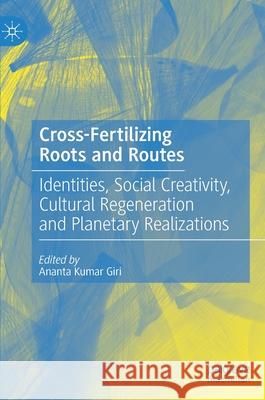Cross-Fertilizing Roots and Routes: Identities, Social Creativity, Cultural Regeneration and Planetary Realizations » książka
topmenu
Cross-Fertilizing Roots and Routes: Identities, Social Creativity, Cultural Regeneration and Planetary Realizations
ISBN-13: 9789811571176 / Angielski / Twarda / 2021 / 416 str.
Cross-Fertilizing Roots and Routes: Identities, Social Creativity, Cultural Regeneration and Planetary Realizations
ISBN-13: 9789811571176 / Angielski / Twarda / 2021 / 416 str.
cena 402,53
(netto: 383,36 VAT: 5%)
Najniższa cena z 30 dni: 385,52
(netto: 383,36 VAT: 5%)
Najniższa cena z 30 dni: 385,52
Termin realizacji zamówienia:
ok. 16-18 dni roboczych.
ok. 16-18 dni roboczych.
Darmowa dostawa!
Kategorie:
Kategorie BISAC:
Wydawca:
Palgrave MacMillan
Język:
Angielski
ISBN-13:
9789811571176
Rok wydania:
2021
Wydanie:
2021
Ilość stron:
416
Waga:
0.69 kg
Wymiary:
21.01 x 14.81 x 2.54
Oprawa:
Twarda
Wolumenów:
01
Dodatkowe informacje:
Wydanie ilustrowane











